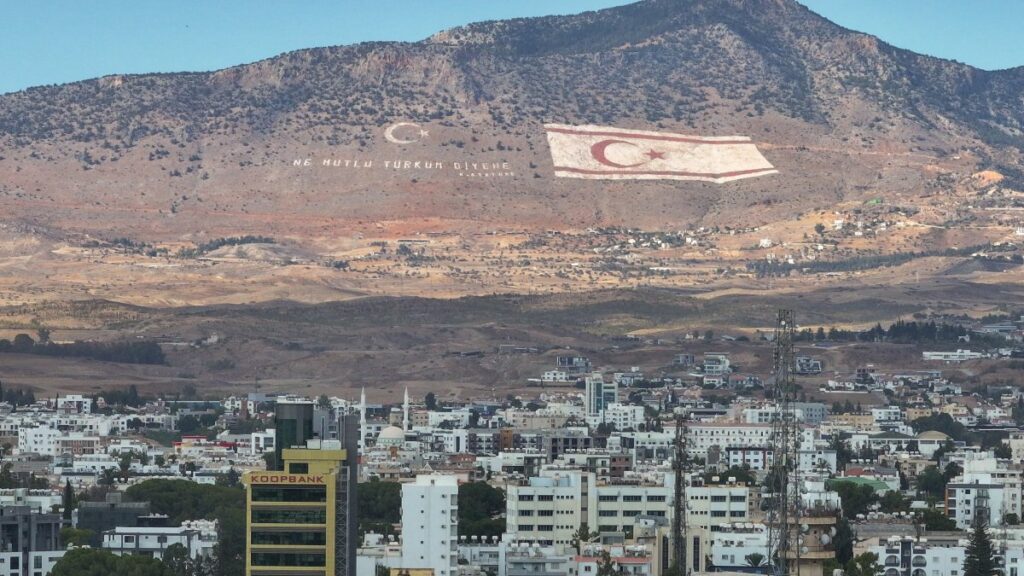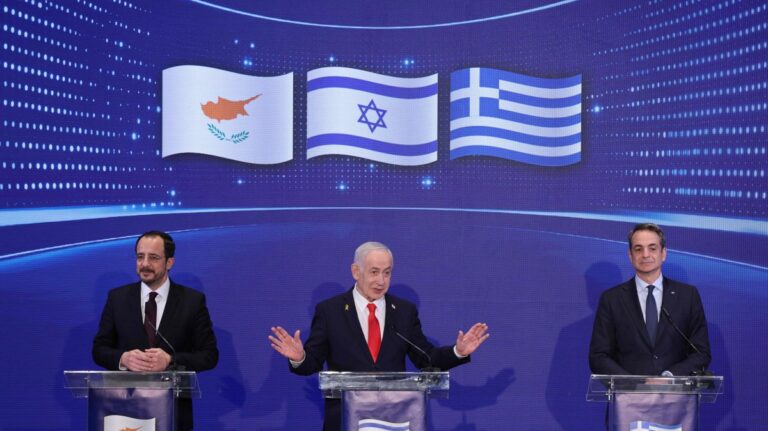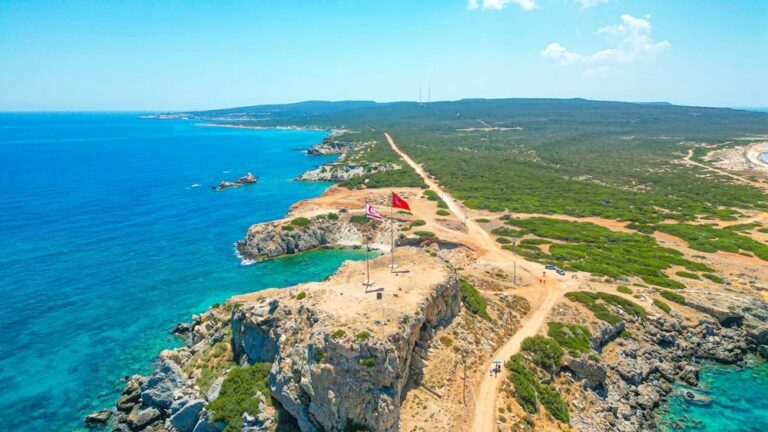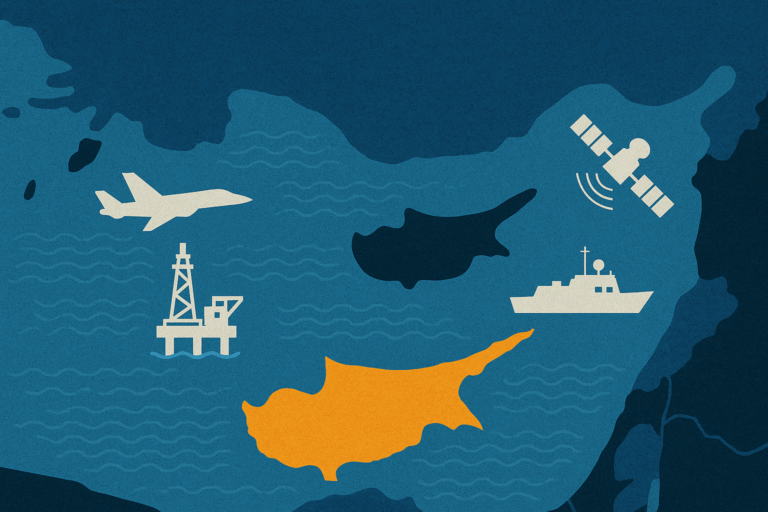As the Turkish Republic of Northern Cyprus (TRNC) approaches presidential elections on Oct. 19, 2025, the island is bracing itself for yet another round of political theater – some call it democracy, while others might be forgiven for calling it a long-running tragicomedy. Eight candidates may have thrown their hats into the ring, but everyone knows this race is between two men: Tufan Erhürman and the incumbent president, Ersin Tatar. The rest, frankly, could have saved themselves the printing costs.
Tatar’s presidency has already shifted the island’s trajectory in a way that no amount of recycled federal daydreaming can obscure. Under his leadership, the TRNC has emerged from the diplomatic shadows, no longer content to sit quietly at the margins while decisions are made elsewhere. He has made the idea of a two-state solution not just a slogan for domestic rallies, but a talking point in international fora. The TRNC is now an observer of the Organization of Turkic States (OTS) and maintains growing visibility within the organization. It has begun cultivating bilateral relations with countries and institutions that, for decades, regarded the island as an awkward political puzzle best ignored.
Envoys from the TRNC are now dispatched abroad, and foreign envoys arrive in return. Tatar has met presidents and ministers from Azerbaijan to Gambia, as well as members of the British Parliament. Even his unexpected encounter with Fidias Panayiotou, the Greek Cypriot YouTuber-turned-member of the European Parliament, managed to cause a political stir. One might call that diplomacy by unconventional means, but at least it’s diplomacy.
None of this has gone unnoticed by the electorate. Polls consistently show Tatar as the strongest candidate, backed by the governing coalition of the National Unity Party (UBP), the Rebirth Party (YDP) and the Democratic Party (DP). There’s a reason for this: he has not simply talked about changing the TRNC’s status; he has acted. For once, the TRNC is not waiting politely for history to happen. It is trying to write it.
Opposition opposes the TRNC
Erhürman, on the other hand, carries the banner of the Republican Turkish Party (CTP), a party that once stood for defending Turkish Cypriot rights but now seems more comfortable badmouthing its own homeland in Brussels than defending it at home. Supported only by his own left-wing party, Erhürman represents a vision of the TRNC that feels stuck somewhere between 1974 nostalgia and a Brussels policy memo. His supporters may call it cosmopolitan; many Turkish Cypriots, however, increasingly see it as a betrayal.
The CTP’s members have, through their own words, trampled not only on Türkiye but on the values that underpinned the island’s survival. This is a party that critiques its own country to Western audiences with an enthusiasm that could almost be admired if it weren’t so politically destructive. Once founded to protect Turkish Cypriot rights, it has gradually become the “party of betrayal” in the eyes of many, abandoning its founding principles for a foreign ideology that neither understands nor particularly respects the realities of the island.
It is impossible to understand today’s left-wing camp without recalling the figure of Mustafa Akıncı, the former president and ideological mentor of much of the current federalist bloc. During his term, Akıncı not only deviated from constitutional boundaries but also unilaterally presented maps to the Greek Cypriot side, offering them strategically significant territory without any legal mandate to do so. His presidency was defined by a single-minded commitment to a federal solution that overlooked both history and the prevailing political realities on the ground. And despite all these grand gestures, he ultimately failed to secure any meaningful progress in negotiations. While he no longer holds office, his influence lingers like a ghost at every CTP rally, a reminder of an era when grand gestures replaced sober strategy.
Their chosen political solution, a federal reunification of Cyprus, has been a glittering mirage for decades. It is an idea that has failed in theory, in practice, and at the ballot box. Does anyone remember the Annan Plan Referendum of 2004? Turkish Cypriots voted in favor, Greek Cypriots rejected it resoundingly. And yet, like a moth to a flame, the CTP returns to the same idea, as if historical memory were merely an inconvenient detail to be ignored.
Serving whose dream?
Let’s speak plainly: The federal solution has been discussed for half a century, and every attempt has foundered on the rocks of Greek Cypriot maximalism – most recently in Crans Montana in 2017, despite Akinci’s fatal concessions. Southern politicians, newspapers and protest movements leave no doubt about their intentions. Federal reunification is, for them, merely a polite prelude to the subordination of Turkish Cypriots – a “unified” Cyprus where Turkish Cypriots become a constitutional curiosity without real power. And of course, Türkiye would be expected to surrender its guarantor rights – the very rights that prevented genocide in the 1970s. Why? Because the Megali Idea, that grand vision of a Greater Hellenic state, has not vanished. It has merely updated its vocabulary for modern consumption in Brussels.
Every Turkish Cypriot knows the reality: cross the Green Line with TRNC number plates and you risk being pelted with eggs. That’s the depth of southern “reconciliation.” If this is the federal dream, one might ask, who exactly is dreaming?
The European Union’s behavior remains an open wound. The Copenhagen criteria promised that Cyprus would only join the EU if reunified. Yet in 2004, after the Greek Cypriot rejection, the EU welcomed only the south, granting it sovereignty over the entire island. Was this not a breach of promise, of EU law, and of basic political decency? Turkish Cypriots voted for reunification and were punished. Greek Cypriots voted against it and were rewarded. If this is Brussels’ idea of justice, it is little wonder why federalism has become a punchline north of Nicosia.
Subsequent negotiations, from the Talat-Christofias talks to the Crans-Montana talks in 2017, yielded the same script. The south demanded sole sovereignty, made no meaningful concessions and rejected every attempt at genuine compromise. The question then arises: Does the CTP suffer from a political form of Stockholm Syndrome, or are they simply pretending not to understand history?
State within state
Meanwhile, the CTP has developed a formidable network of nongovernmental organizations (NGOs), or perhaps more accurately, a state within a state. Funded and ideologically shaped by foreign powers, these organizations wield influence far beyond their democratic mandate. Publicly, they are advocates of civil society. Privately, they act as instruments for political agitation and strategic polarization. Their leaders spent years abroad, carefully building connections before returning to weave a web of influence that reaches into every corner of political life.
They call themselves democratic. They call themselves left-wing. And like similar movements elsewhere, these labels serve as convenient camouflage for undemocratic practices. Anyone who disagrees is silenced, marginalized or accused of heresy against their secular orthodoxy. Even established columnists who dare expose their links to imperial powers find themselves silenced in their own homeland – including me. And they dare to accuse Türkiye of interference regularly.
The irony, of course, is thick. Türkiye has consistently accepted electoral results in the TRNC, including those that produced CTP-led governments. Greece, on the other hand, is never subjected to equivalent scrutiny. When was the last time a southern Cypriot politician organized mass protests against Greek influence? Exactly my point.
Most recently, their network staged protests against the lifting of the headscarf ban in schools, presenting it as a secularist emergency. In reality, it was a transparent maneuver to polarize the electorate and provoke Ankara. Their election strategy appears to be built on three pillars: antagonizing Türkiye, romanticizing Brussels and hoping voters develop collective amnesia.
And now, in a twist worthy of political satire, the CTP has found common ground with Greek Cypriot leader Nikos Christodoulides. Yes, the same Christodoulides whose political career has been marked by nationalist posturing and rejectionist policies. Suddenly, weeks before the election, he had discovered a fondness for reunification! How touching. One wonders: Was this conversion spontaneous, or was it inspired by the usual strategic whisperers stationed across the island?
TRNC decides its future
This election is not a mere contest of personalities. It is a referendum on the direction the TRNC will take. On one side stands Ersin Tatar, representing a pragmatic and increasingly internationally engaged TRNC, intent on asserting its sovereignty and dignity. On the other hand, Tufan Erhürman and the CTP are offering voters the same tired federal fantasies, foreign entanglements and internal divisions that have paralyzed the island for decades.
The choice, then, is stark. Reality or delusion. Sovereignty or submission. A two-state future or a federal mirage. The TRNC has seen these debates play out too many times to be fooled again. This time, the stakes are clear, the masks have slipped, and the voters will decide whether the island continues its emergence onto the international stage – or retreats into the comforting embrace of old illusions.




